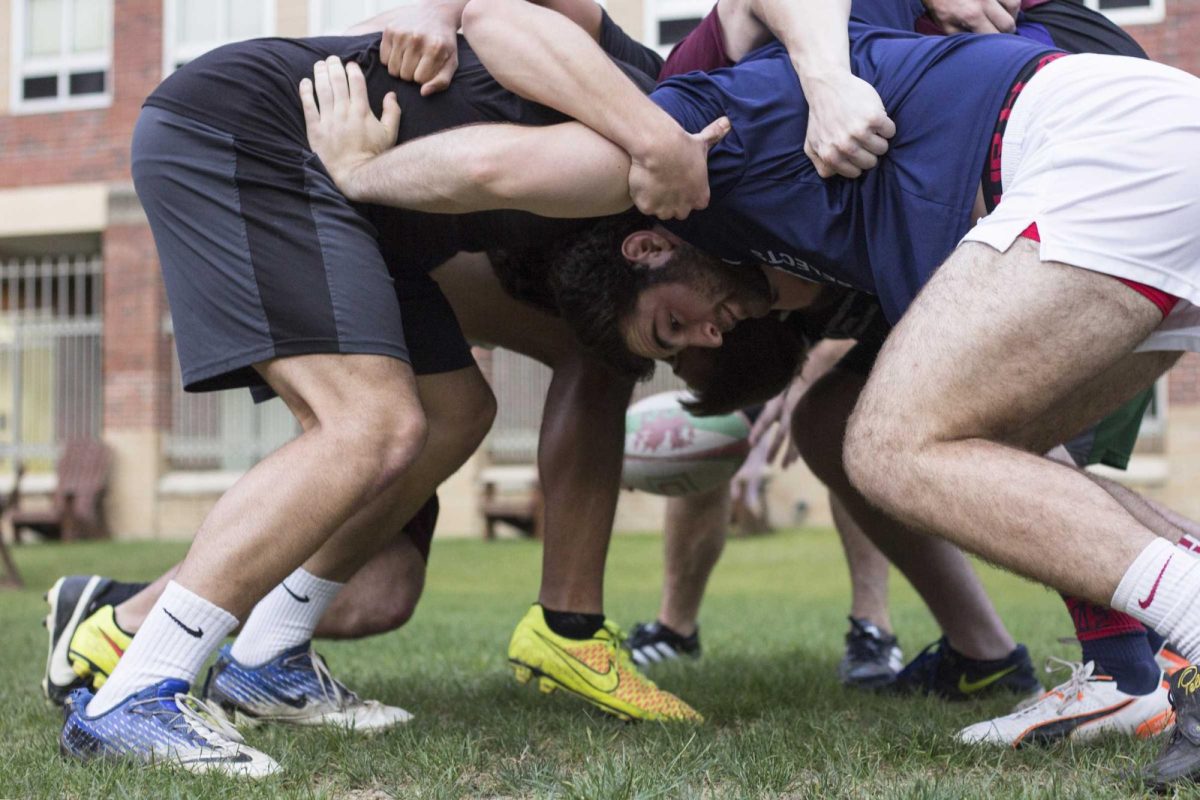“…she allowed the suspect to walk her home.” There it is right there: victim blaming. The kind of victim blaming that happens more with sexual assault and rape than it does with any other crime. If we call this quote from last week’s front- page Maroon article about a recent sexual assault on campus a mere recounting of events, then we’re missing the context. We’re missing the dominant discourse whose message is that it is women’s responsibility to not get raped. Her irresponsible behavior (“she admitted she had drinks with the alleged suspect”), her lack of awareness, her bad judgment. This kind of after-the-fact victim blaming doesn’t help solve the problem, rather it helps perpetuate it.
So, believing we are addressing the problem, we come up with helpful hints about how to protect yourself: don’t walk alone at night, don’t drink, be aware of your surroundings.
But, wait, we’ve evolved, we know the person doing the raping is usually known by the victim. So now we’ve come
up with dating safety tips: inform someone where you are both going, trust your instincts, stay with friends. Great.
How many more levels of self-protection are we going to require of women? Where’s the public discourse about not raping? Where are the helpful hints that keep people from raping?
How about these tips that are part of a rape prevention list that has recently been posted all over the internet:
Use the Buddy System! If it is inconvenient for you to stop yourself from raping someone, ask a trusted friend to accompany you at all times.
Carry a rape whistle. If you find that you are about to rape someone, blow the whistle until someone comes to stop you.
Don’t forget: Honesty is the best policy. When asking a woman out on a date, don’t pretend that you are interested in her as a person; tell her straight up that you expect to be raping her later. If you don’t communicate your intentions, the woman may take it as a sign that you do not plan to rape her.
These tips are meant to get our attention about how we talk about the issue, that the burden is placed entirely on the potential victim to keep the crime from happening. The words we use and the context we use them in matter. Language matters. How we talk about issues shapes and creates our reality.
So what reality are we creating – and what truth are we deflecting – when we call this incident a “teachable moment, especially when it comes to consuming alcohol?” Wow. “A teachable moment”? Really? And “Especially when it comes to alcohol”?! Our insistence that alcohol is the problem allows us to ignore the
fundamental issues. It doesn’t mean we shouldn’t be talking about the role alcohol plays, but we need to put it in its proper context. Maybe the way we choose our words to respond to sexual assault offers us the real teachable moment here. We need to be having conversations about all the factors that come into play. For instance, let’s address head on the ways we value masculinity above femininity; the role played by unfair and dangerous social expectations that girls and women be sexy but not sexually active while boys and men should have as much sex as possible to prove their masculinity; and the influence exerted by heteronormative ideals and a binary that requires a conqueror and a conquered in sexual relationships.
At our university, we take pride in the promotion of being women and men for others, to upholding the dignity of all human beings, and to working toward social justice. Let’s put our language (and our resources) where our mission is.
Karen Reichard is the director of the women’s resource center and can be reached at [email protected]
On The Record is a regular column open to all Loyola faculty and staff. Those interested in contributing can contact












